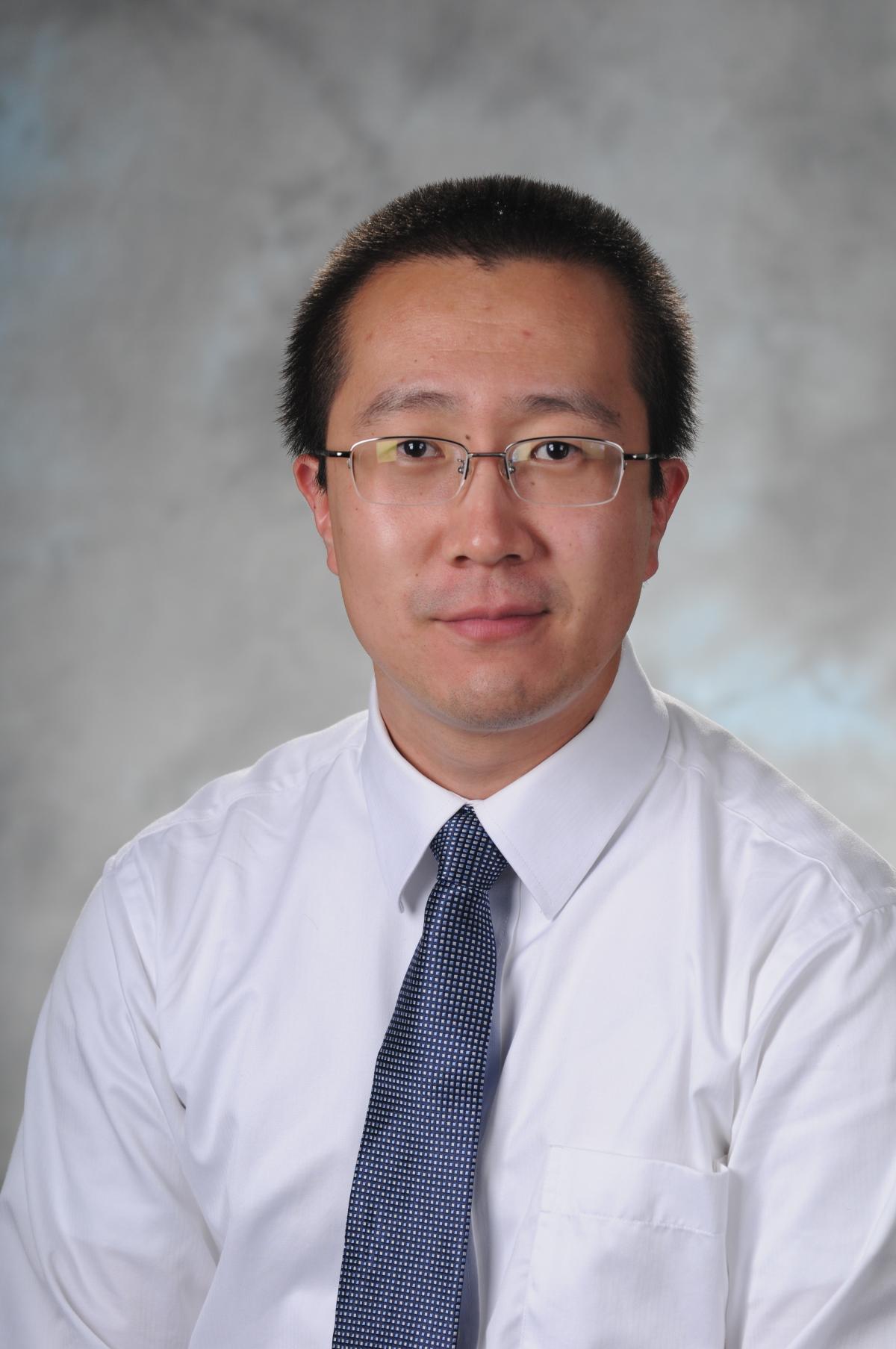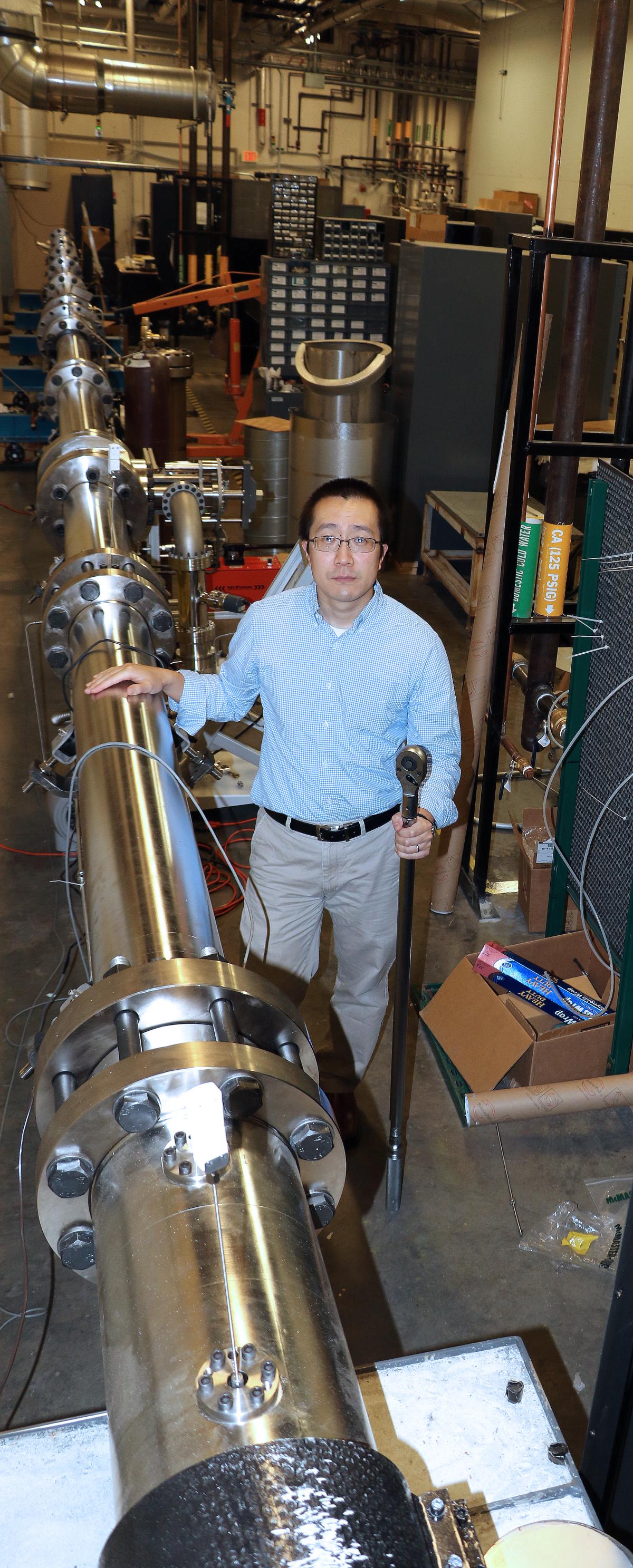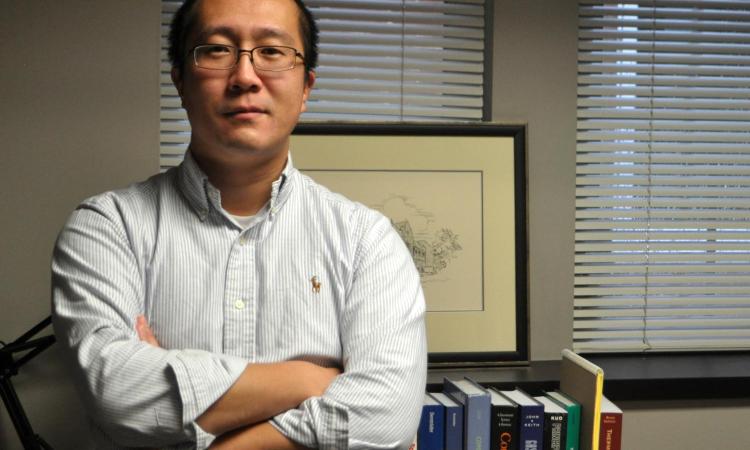Pushing the limits in combustion efficacy
Associate Professor Wenting Sun has been selected for the Hiroshi Tsuji Early Career Researcher Award, co-sponsored by Elsevier and The Combustion Institute. The award is presented to no more than two early career researchers who have demonstrated excellence in fundamental or applied combustion science and made significant progress in their field within four to ten years of completing a doctoral degree. Daniel Guggenheim School alumna Jacqueline O'Connor joins Sun as a 2023 awardee along with 2016 recipient Professor Adam Steinberg. Sun has been a member of The Combustion Institute since he was a Ph.D. student at Princeton University. In addition, he serves as the co-chair of the Early Career Advisory Committee of The Combustion Institute and treasurer of the Eastern States Section of the same.
As a result of Sun’s win, he will receive $10,000 and travel to Milan, Italy, for the 40th International Symposium Emphasizing Energy Transition in July 2024 to receive the award and anticipates submitting papers to the symposium.
“I am truly honored and thrilled to be selected for this award. First, I must acknowledge the hard work of my students, past and present, and the research faculties with whom I have collaborated. I also appreciate my colleagues' support, encouragement, and advice throughout my career; it has been invaluable. Finally, thank you to everyone in our community; being recognized by them is truly humbling,” Sun shared.

Associate Professor Wenting Sun
Undoubtedly, combustion research affects everyone on the planet. For example, almost all car, jet, and rocket engines use fuel. The chemical-physical process of converting fuels into energy or thrust is called combustion. Sun’s research focuses on combustion kinetics and new technologies to enable combustion in harsh environments, such as combustion in hypersonic flows and combustion at very high-pressure conditions.
“We study various aspects of the combustion process to make it more efficient and cleaner. It could occur at conditions beyond its current limits. For example, natural gas and gasoline combustion emit a huge amount of carbon dioxide, which causes global warming. We ask, ‘could we use those fuels more efficiently and employ fuels with less carbon to generate electricity and reduce carbon emissions, particles, and NOx emitted from jet engines? Can we make engines cleaner?’ These are the goals of combustion research,” Sun explained.
The award-winning researcher has always enjoyed solving problems. His interest in aerospace engineering was sparked while on his first flight abroad to the United States in 2007. He sat on the airplane for 13 hours and was amazed by how powerful the aircraft was as he pondered the hours to travel, the 200-passenger load, and their heavy luggage.
“I hope someday we can travel 6,000 miles within just a few hours. I think about it every single time I am on a flight.”

Sun in high pressure shock tube facility inside the Ben Zinn Combustion Lab

